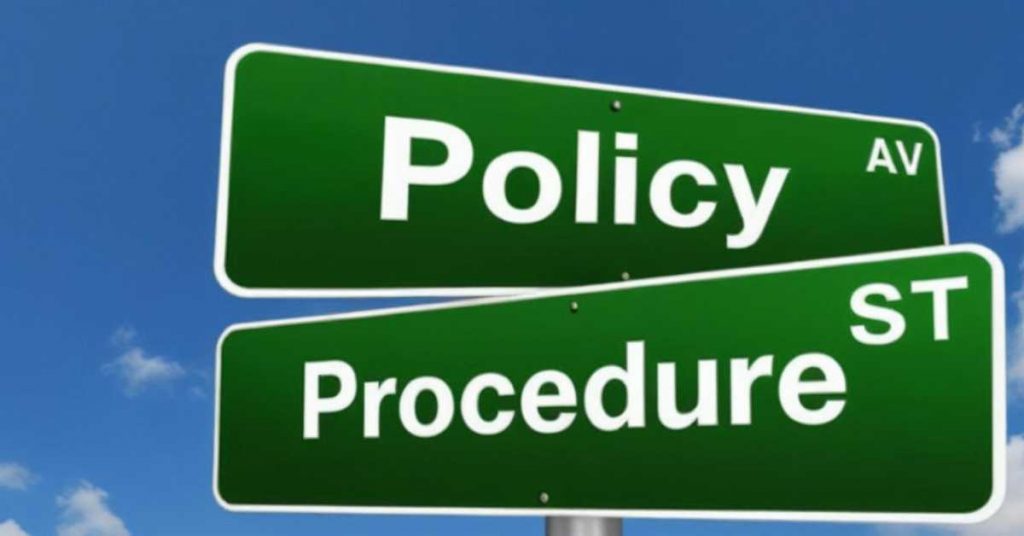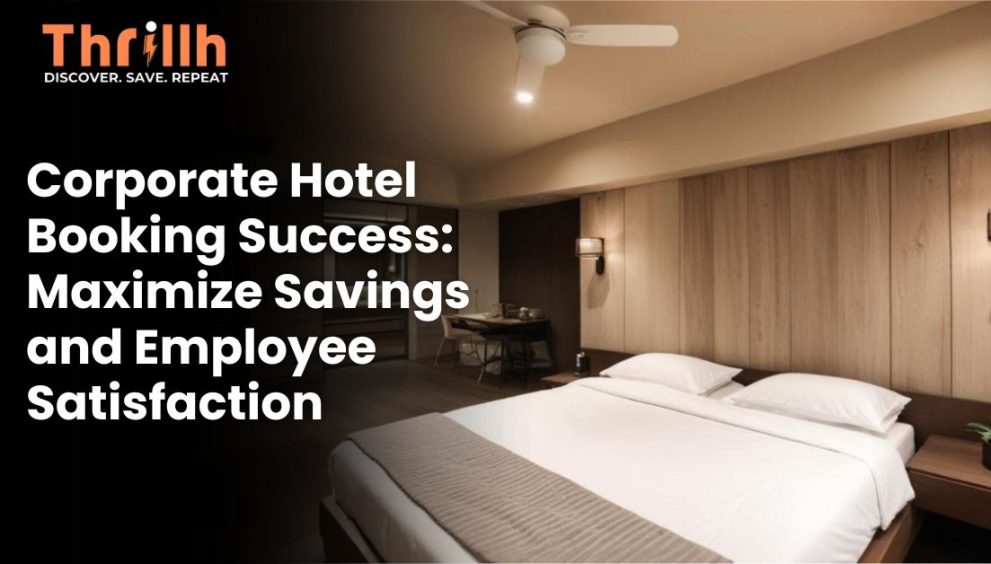Introduction to Corporate Hotel Booking
Corporate hotel booking refers to the process where businesses arrange accommodations for their employees, clients, or stakeholders during business trips or corporate events.
Unlike regular hotel bookings, corporate bookings are often negotiated at a discounted rate, considering the volume and frequency of reservations a company might make over time.
This service is crucial for businesses that frequently send employees on work trips, host clients, or organize conferences and meetings.
A well-structured corporate hotel booking system not only simplifies the travel process for employees but also helps businesses manage their travel budgets more effectively.
Companies often partner with specific hotels or hotel chains to ensure consistent service quality, convenience, and cost savings.
Differences Between Corporate and Regular Hotel Booking
Tailored Services for Corporate Clients: Corporate hotel bookings come with specific services designed to cater to the needs of business travelers.
These may include high-speed internet access, meeting rooms, express check-in/check-out, and more. These services ensure that business travelers can maintain productivity even while on the road.
Negotiated Rates and Contracts: One of the main differences between corporate and regular bookings is the pricing structure. Corporate clients often benefit from negotiated rates, which are lower than standard rates due to the volume of bookings they guarantee over a period. These rates are usually locked in through contracts, providing businesses with cost predictability.
Customizable Booking Policies: Corporate hotel booking allows companies to establish custom booking policies that align with their travel guidelines. These policies can dictate which hotels employees should book, the maximum allowable rate, and other preferences that align with the company’s budget and standards.
Benefits of Corporate Hotel Booking

Cost Efficiency and Savings: Corporate hotel bookings provide businesses with significant savings through negotiated rates. This cost-efficiency is crucial for companies that have substantial travel needs.
Streamlined Booking Processes: By establishing relationships with hotels and using corporate booking platforms, companies can streamline the booking process. This reduces the administrative burden on employees and travel managers, making the booking process faster and more efficient.
Enhanced Employee Satisfaction: When businesses prioritize the comfort and convenience of their employees during travel, it can lead to higher job satisfaction and productivity. Access to quality accommodations, tailored services, and ease of booking are factors that contribute to this satisfaction.
Access to Premium Services: Corporate hotel bookings often include access to premium services that are not typically available to regular guests. These may include priority room upgrades, complimentary breakfast, or access to exclusive business lounges.
Corporate Hotel Programs and Their Features

Loyalty Programs for Corporate Clients: Many hotel chains offer loyalty programs specifically for corporate clients. These programs reward businesses for frequent bookings with points that can be redeemed for free nights, upgrades, or other perks. This is beneficial for companies that want to maximize the value of their travel expenses.
Corporate Travel Management Services: Some hotels provide dedicated corporate travel management services that handle all aspects of booking and managing hotel stays for a company. This service can include everything from negotiating rates to managing travel itineraries and handling special requests.
VIP Amenities and Services for Business Travelers: Business travelers often receive VIP treatment through corporate bookings. This can include expedited check-in, access to concierge services, and other amenities designed to enhance the business travel experience.
Key Factors to Consider When Choosing a Corporate Hotel

Location and Accessibility: The location of the hotel is a critical factor, especially for business trips. Proximity to the airport, business centers, and transportation hubs can save time and reduce travel stress for employees.
Room Amenities and Business Facilities: Hotels catering to corporate clients usually offer amenities like in-room workstations, high-speed internet, and business centers. These facilities are essential for employees who need to work remotely during their stay.
Pricing and Corporate Rates: While cost is always a concern, it’s important to weigh pricing against the value offered. Corporate rates should be competitive, but they should also include services and amenities that meet the company’s needs.
Hotel Reputation and Reviews: The reputation of a hotel and the reviews from other business travelers can provide insight into the quality of service and facilities. Reliable customer service, cleanliness, and a professional environment are key considerations.
Corporate Rate Negotiation Strategies

Understanding the Needs of Your Business: Before entering into negotiations, companies should clearly understand their travel needs, including the frequency of travel, preferred destinations, and the types of accommodations required.
Building Long-Term Relationships with Hotels: Establishing a long-term partnership with a hotel or hotel chain can lead to better rates and more personalized service. Hotels value repeat business and are often willing to offer discounts and other perks to loyal corporate clients.
Leveraging Company Volume for Discounts: Companies that book a high volume of rooms can use this leverage to negotiate better rates. By committing to a certain number of bookings, businesses can secure significant discounts.
Examples of Successful Negotiations: Case studies of successful negotiations can offer valuable insights into how companies have secured favorable terms. These examples can serve as a guide for businesses looking to optimize their corporate booking strategies.
Booking Tools and Technology for Corporate Hotels

Corporate Booking Platforms and Software: Technology has revolutionized the way businesses handle hotel bookings. Corporate booking platforms allow companies to manage all their bookings in one place, track expenses, and ensure compliance with travel policies.
Mobile Apps for Seamless Booking: Mobile apps provided by hotels or third-party booking platforms make it easy for employees to book accommodations on the go. These apps often feature user-friendly interfaces and allow for quick adjustments to bookings.
Integrations with Expense Management Systems: Integrating booking tools with expense management systems streamlines the process of tracking travel expenses. This ensures accurate reporting and helps companies stay within budget.
Corporate Hotel Booking Policies and Guidelines

Developing a Corporate Travel Policy: A well-defined travel policy ensures that all employees follow the same guidelines when booking hotels. This policy should cover preferred hotels, maximum allowable rates, and procedures for making reservations.
Compliance with Company Guidelines: Ensuring that employees comply with the corporate travel policy is essential for managing costs and maintaining consistency. Regular audits and clear communication can help enforce these guidelines.
Managing Last-Minute Changes and Cancellations: Flexibility is often necessary in corporate travel. Companies should have clear policies for handling last-minute changes or cancellations to minimize disruption and avoid unnecessary costs.
Top Hotel Chains for Corporate Booking

Marriott International: Known for its wide range of properties and strong loyalty programs, Marriott is a popular choice for corporate travelers.
Hilton Hotels & Resorts: Hilton offers extensive business services and convenient locations, making it a top option for corporate bookings.
Hyatt Hotels Corporation: Hyatt is known for its upscale accommodations and personalized services, catering to the needs of business travelers.
IHG Hotels & Resorts: IHG provides a variety of brands that cater to different price points, offering flexibility for corporate clients.
How to Optimize Corporate Hotel Stays?
Maximizing Loyalty Program Benefits: Corporate travelers can earn points and enjoy perks by enrolling in hotel loyalty programs. These benefits can enhance their stay and provide value to the company.
Tips for Ensuring a Smooth Check-In and Stay: Preparation is key to a successful hotel stay. Ensure that all necessary documents are in order, communicate special requests in advance, and make use of mobile check-in options to save time.
Leveraging Concierge and Business Services: Many hotels offer concierge services that can assist with everything from restaurant reservations to arranging transportation. Utilizing these services can make the stay more convenient and productive.
Sustainable and Eco-Friendly Corporate Hotel Booking

Importance of Sustainability in Corporate Travel: As businesses increasingly prioritize sustainability, choosing eco-friendly hotels has become a key consideration. Sustainable travel practices align with corporate social responsibility goals and can reduce the environmental impact of business travel.
Choosing Eco-Friendly Hotels: Look for hotels that have green certifications, use renewable energy, and implement waste reduction practices. These hotels not only contribute to environmental conservation but also often offer healthier and more comfortable environments for guests.
Encouraging Sustainable Practices Among Employees: Companies can promote sustainable travel by encouraging employees to choose eco-friendly options, reduce waste during their stay, and support local communities.
Challenges in Corporate Hotel Booking

Managing Different Employee Preferences: Balancing the diverse preferences of employees can be challenging. While some may prioritize luxury, others may prefer simplicity and convenience.
Dealing with Budget Constraints: Budget limitations often require companies to make trade-offs between cost and comfort. Effective negotiation and careful planning can help manage these constraints.
Ensuring Consistency Across Multiple Locations: For businesses that operate in multiple locations, maintaining consistency in hotel quality and service can be difficult. Partnering with reputable hotel chains can help ensure a uniform experience.
Future Trends in Corporate Hotel Booking

Increasing Use of AI and Automation: Artificial intelligence and automation are transforming the corporate hotel booking process. AI can streamline bookings, suggest optimal choices, and even manage changes automatically.
Rise of Flexible Booking Options: The demand for flexibility in bookings, such as last-minute changes and cancellations, is growing. Hotels are responding by offering more adaptable policies.
Growth of Hybrid Workspaces within Hotels: As remote work becomes more prevalent, hotels are increasingly offering hybrid workspaces. These spaces combine accommodation with flexible office environments, catering to the needs of modern business travelers.
Case Studies: Successful Corporate Hotel Booking Strategies
Case Study 1: Large Corporation: This case study could highlight how a multinational corporation optimized its hotel booking strategy by consolidating bookings across regions and securing global contracts with major hotel chains.
Case Study 2: Small to Medium-Sized Enterprise: This example might focus on a smaller company that managed to reduce travel expenses and improve employee satisfaction by partnering with local hotels and using a corporate booking platform.
Lessons Learned from These Case Studies: These case studies provide valuable lessons that other businesses can apply to their own corporate booking strategies.
FAQs on Corporate Hotel Booking
What is the difference between a corporate rate and a regular rate?
Corporate rates are negotiated based on the volume of bookings a company guarantees, often resulting in lower prices and added perks compared to regular rates.
How can a company ensure compliance with its corporate travel policy?
By clearly communicating the policy to all employees, using booking tools that enforce guidelines, and regularly auditing travel expenses.
Are there specific hotels that specialize in corporate bookings?
Yes, many hotel chains, such as Marriott, Hilton, and Hyatt, have programs tailored to corporate clients with special rates and services.
How do corporate booking platforms benefit businesses?
These platforms centralize the booking process, ensuring compliance with company policies, tracking expenses, and providing detailed reporting.
What are the best ways to negotiate lower rates for corporate bookings?
Leverage your company’s booking volume, build long-term relationships with hotels, and consider using a travel management service to negotiate on your behalf.
How can businesses manage last-minute changes to bookings?
Having flexible booking policies and working with hotels that offer free cancellations or modifications can help manage unexpected changes.





Blue Techker
21st Oct 2024Blue Techker This is really interesting, You’re a very skilled blogger. I’ve joined your feed and look forward to seeking more of your magnificent post. Also, I’ve shared your site in my social networks!